Collaborating to improve food systems and nutrition in humanitarian contexts
In fragile and conflict-affected states (FCAS), nutrition is more than a matter of survival - it’s a critical tool for building resilience. The SUN Movement collaborates with countries navigating these challenges, helping them prioritise nutrition as a cornerstone for stability and development.
Take South Sudan, for example, where the SUN Movement has been working to integrate nutrition into efforts to strengthen fragile food systems.
From farm to plate, this approach encompasses diverse strategies: promoting the cultivation of a wider variety of crops to promote dietary diversity and resilience, bolstering value chains to reduce dependence on costly food imports and strengthen food and nutrition security.
Ensuring children receive nutritious school meals to improve learning outcomes and advancing maternal and infant health is a central part of the strategy to lay the foundations for a more healthy and productive society.
Together, these initiatives form a holistic response to the challenges faced by vulnerable communities, empowering them to build healthier, more sustainable futures.
Across the world, 39 countries have been identified by the World Bank as fragile and conflict-affected states (FCAS).
Of these countries, 25 are members of the SUN Movement.
They include:
CONFLICT
Afghanistan
Burkina Faso
Cameroon
Central African Republic
Democratic Republic of the Congo
Ethiopia
Haiti
Mali
Mozambique
Myanmar
Niger
Nigeria
Somalia
South Sudan
Sudan
Yemen
Burkina Faso
Cameroon
Central African Republic
Democratic Republic of the Congo
Ethiopia
Haiti
Mali
Mozambique
Myanmar
Niger
Nigeria
Somalia
South Sudan
Sudan
Yemen
INSTITUTIONAL AND
SOCIAL FRAGILITY
SOCIAL FRAGILITY
Burundi
Chad
Comoros
Congo, Republic of
Guinea-Bissau
Papua New Guinea
São Tomé and Príncipe
Timor-Leste
Zimbabwe
Chad
Comoros
Congo, Republic of
Guinea-Bissau
Papua New Guinea
São Tomé and Príncipe
Timor-Leste
Zimbabwe
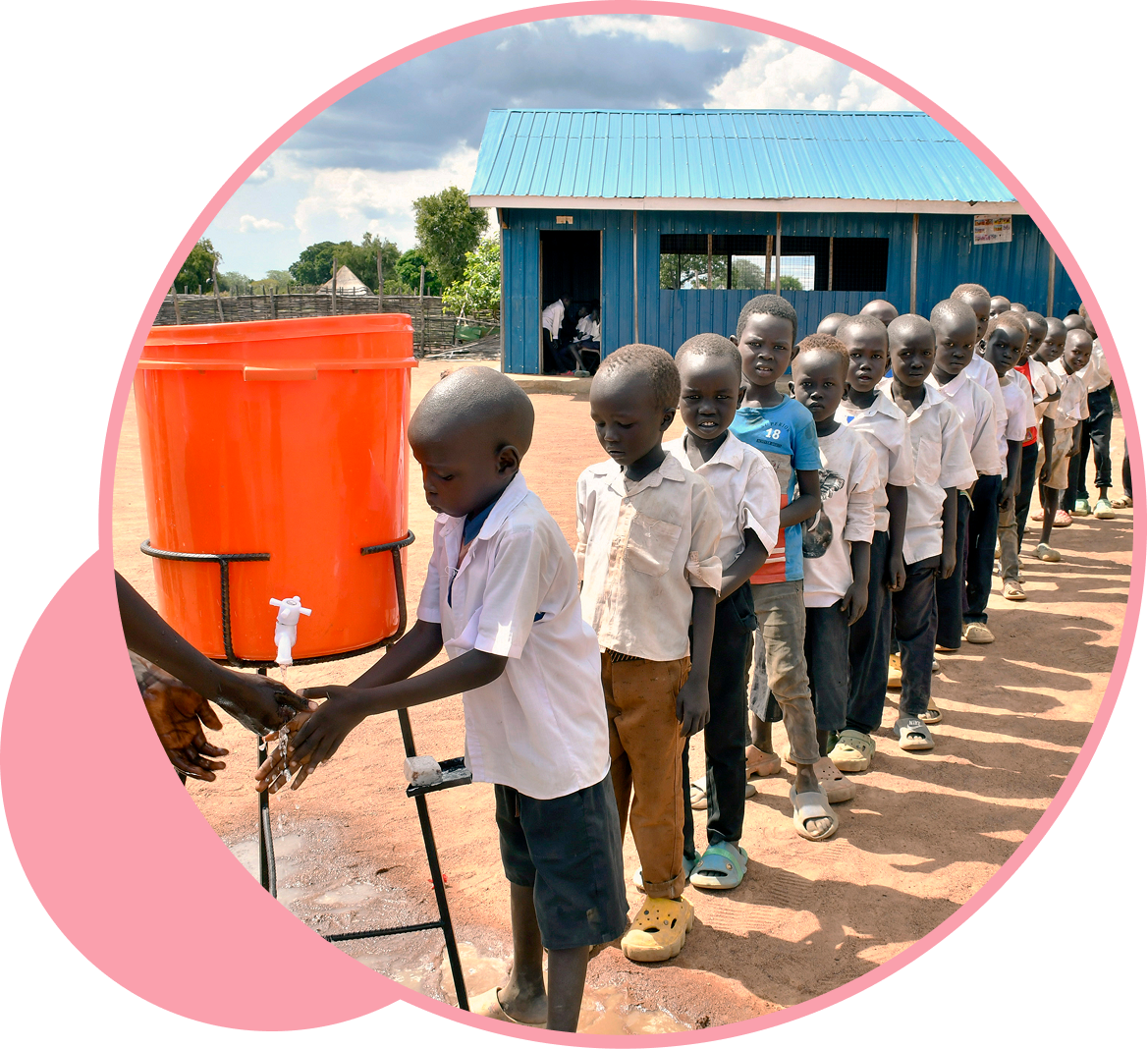
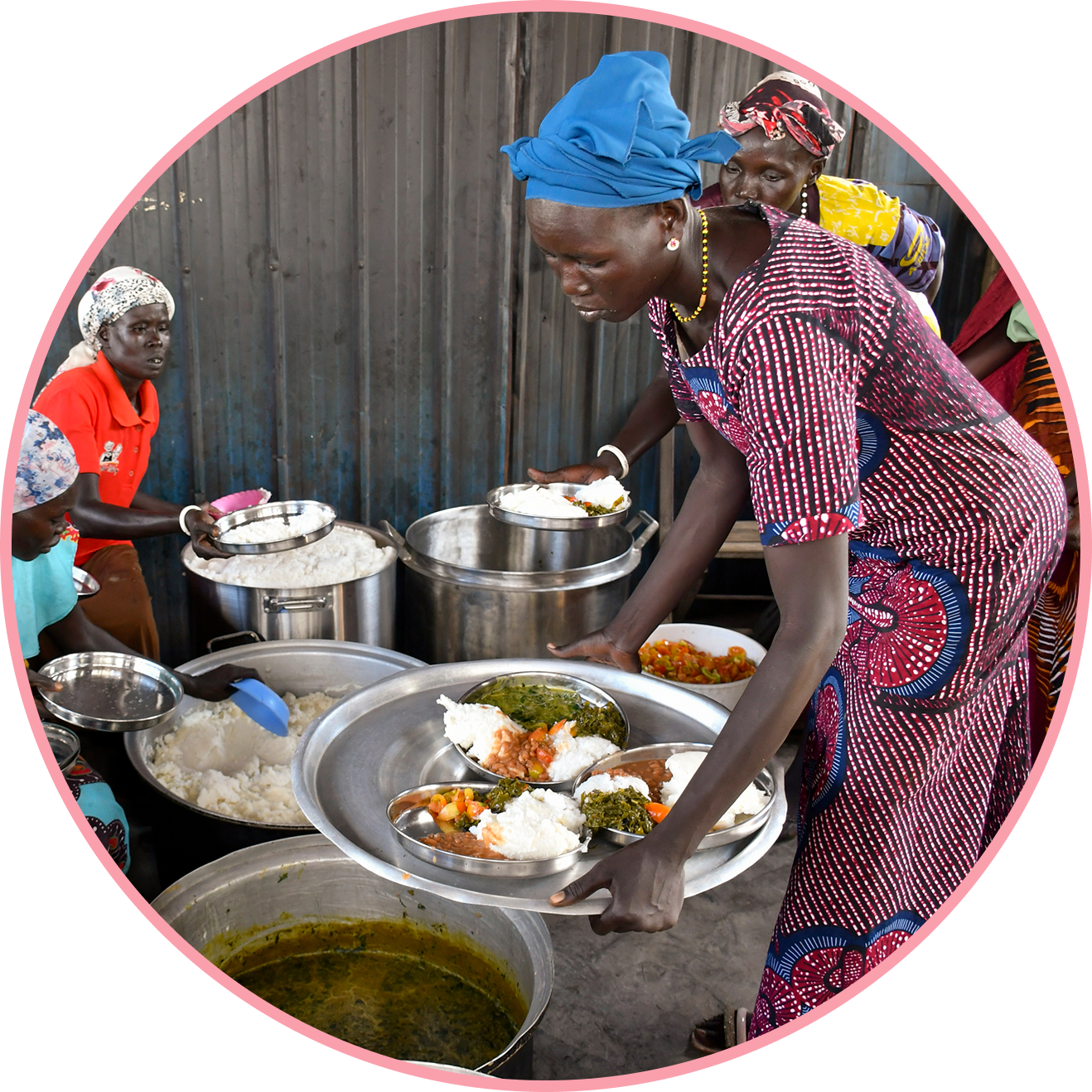
Many of these countries face unique challenges to improving nutrition, including conflict, fragility, and a reliance on humanitarian aid. The SUN Movement is working with governments, organisations and the private sector to prioritise nutrition on their national agendas.
The Movement is also working to shift the focus from humanitarian aid to building long term resilience through improved local food production, increasing dietary diversity, and strengthening value chains to address food insecurity and malnutrition.
The Movement is also working to shift the focus from humanitarian aid to building long term resilience through improved local food production, increasing dietary diversity, and strengthening value chains to address food insecurity and malnutrition.

Mapping food insecurity and malnutrition
in fragile and conflict affected states:
FCAS are facing widespread malnutrition and food insecurity due to several contributing factors including climate change, conflict and economic shocks.
Of the 25 priority FCAS that are members of the SUN Movement, the five facing the most acute food insecurity are:
Democratic Republic of the Congo (25.8 million people)
Nigeria (24.9 million people)
Sudan (20.3 million people)
Afghanistan (19.9 million people)
Ethiopia (19.7 million people)
The five FCAS with the highest number of children under 5 years old facing acute malnutrition in 2023 are:
Nigeria (5.9 million children)
Ethiopia (4.1 million children)
Afghanistan (3.2 million children)
Sudan (3 million children)
Democratic Republic of the Congo (2.8 million children)
Factors contributing to food
insecurity and malnutrition in FCAS:
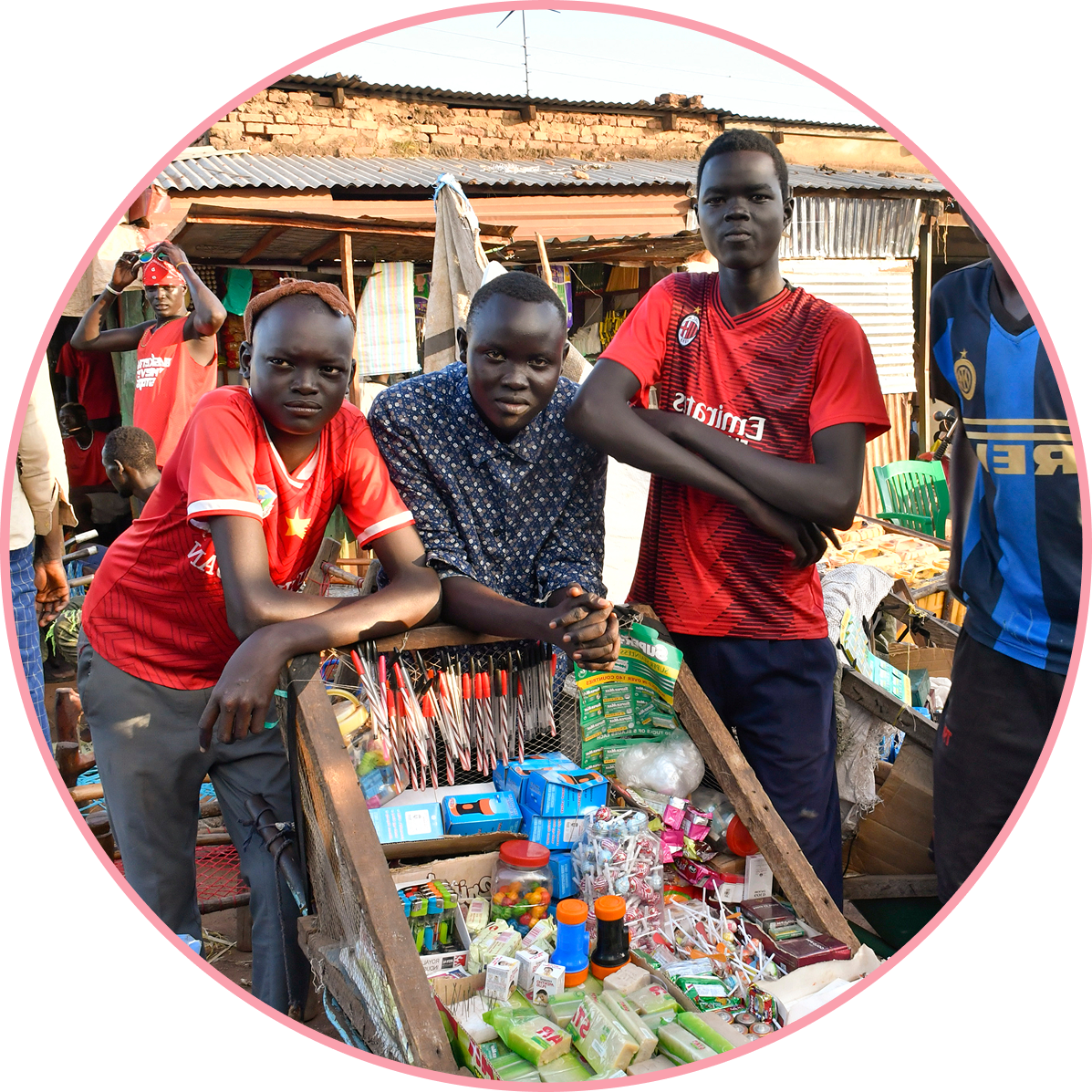
Food systems in fragile settings are prone to failure in multiple ways. They are typically unable to match supply and demand because of insecurity, damaged roads and markets, distorted food prices, low levels of farm productivity, destroyed food stores, limited investment by public or private sector entities, and severely constrained household purchasing power.”
Strengthening food systems in fragile contexts policy brief
Strengthening food systems in fragile contexts policy brief

These factors are often interconnected and can exacerbate each other. Addressing food insecurity and malnutrition in FCAS requires a collaborative, multi-systems approach that takes these complex interactions into account.
Country initiatives fuelling progress
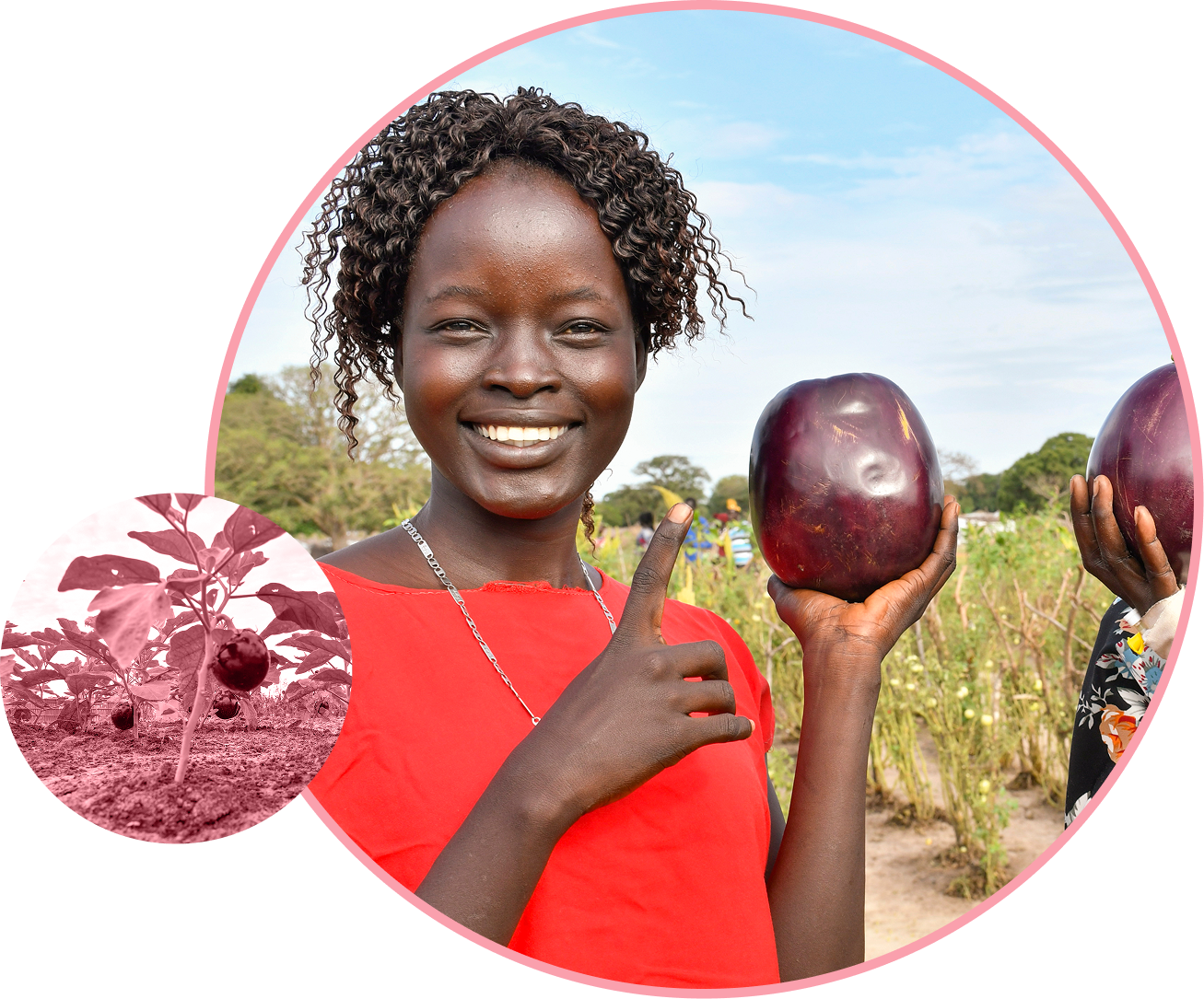
While the 25 FCAS countries till face significant challenges, the SUN Movement is working to support their efforts to improve access to good nutrition.

In Somalia, the SUN Movement has focussed on creating an enabling policy framework and strengthening nutrition governance.
Some of the key achievements include:
- Drafting the Food Systems and Nutrition Act (FSNA) in March 2023
- Creation of the Food Systems, Nutrition and Climate Change Inter-Ministerial Council in October 2023
- The SUN Movement supported Somalia’s efforts to gather information on policy frameworks and nutrition coordination structures by facilitating conversations with Ethiopia, Zambia, and the Philippines.

In Yemen, the SUN Movement helped create a collaborative environment involving governmental and international bodies.
This includes:
- Spearheading a National Gathering in 2024, in Amman, Jordan, uniting representatives from Yemen's government, international partners, and local stakeholders to address the country's severe malnutrition crisis. This gathering aimed to bridge political divides and create actionable plans for nutrition interventions.
- Discussions during the gathering focused on multi-sectoral solutions, highlighting the need for cohesive strategies across health, agriculture, and education. Participants advocated for integrating immediate nutritional needs with long-term developmental goals.
- The conference resulted in a comprehensive action plan based on national leadership, multi-year investments, and needs-based interventions, providing a blueprint for a coherent strategy against malnutrition.
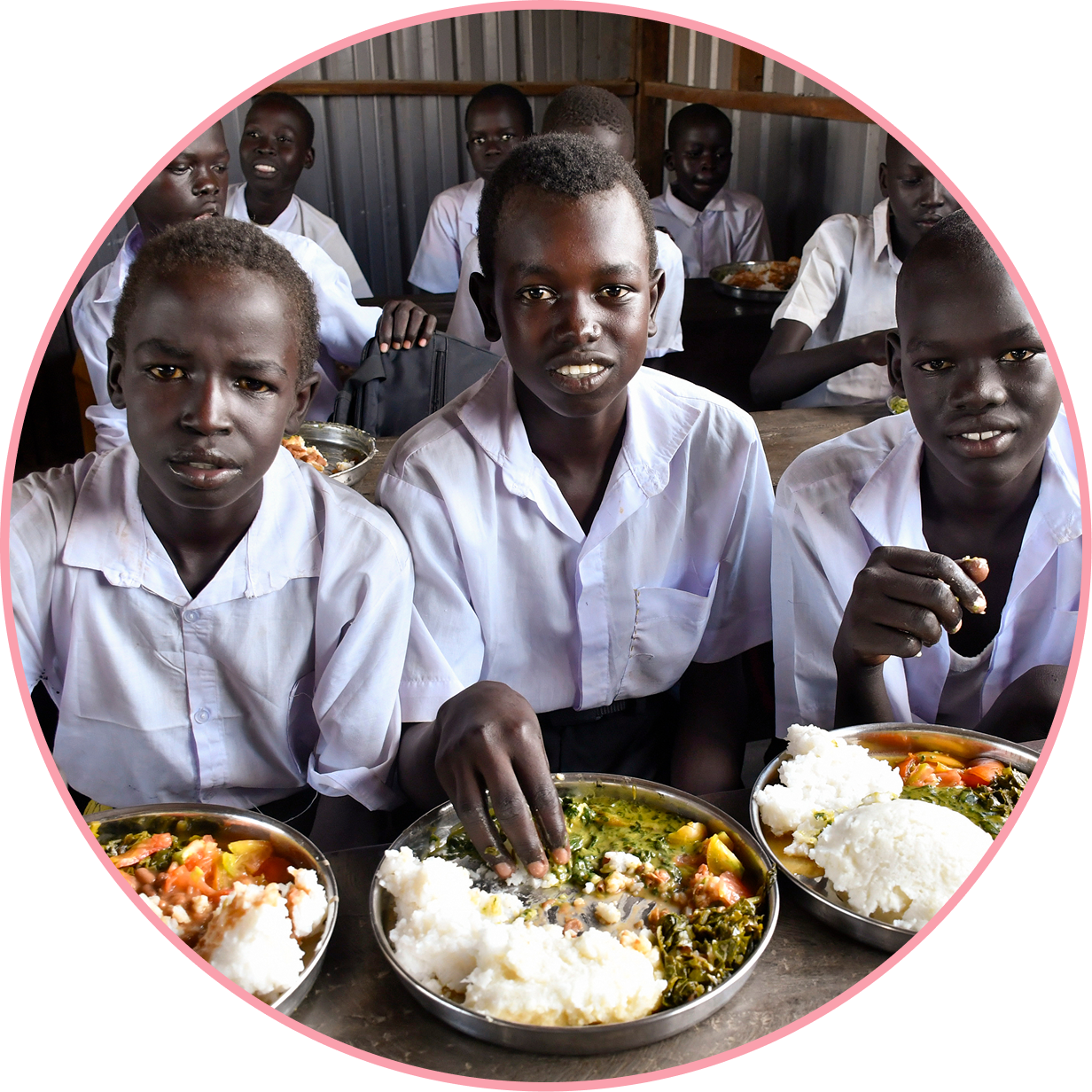
Collaboration between stakeholders across all sectors, a focus on transforming food systems, integrating nutrition into health services, and empowering communities are some of the strategies that have helped decrease rates of malnutrition in FCAS.
When it joined the SUN Movement in June 2013, South Sudan began implementing similar strategies to help address the growing challenge of malnutrition in the country.
Case study:
South Sudan
2.1 million children in South Sudan are at risk of malnutrition
More than 40% of the population lacks access to improved drinking water
Up to 95% of the country's population depends on farming, fishing or herding to meet their food and income needs.


The challenges of food insecurity
and malnutrition in South Sudan
When South Sudan, the world's youngest nation, joined the SUN Movement in June 2013 it was estimated that 200,000 children under five were at risk of being malnourished.
However, recurrent droughts and floods, exacerbated by ongoing conflict and the outbreak of civil war in Sudan in 2023, have devastated livelihoods and displaced millions. By the end of 2023, South Sudan was declared the world’s largest internal displacement situation.
All of these challenges have impacted the ability of farmers to grow diverse, nutritious crops.
Today, the country relies heavily on food imports, but in 2023, South Sudan saw a significant increase in the price of staple foods due to spikes in fuel prices and transportation costs. This has further exacerbated the food crisis in the country. In 2024 it was estimated that 2.1 million children were at risk of malnutrition.
To address these complex, interconnected challenges, South Sudan is implementing an integrated approach to create more robust and sustainable food systems for the country.
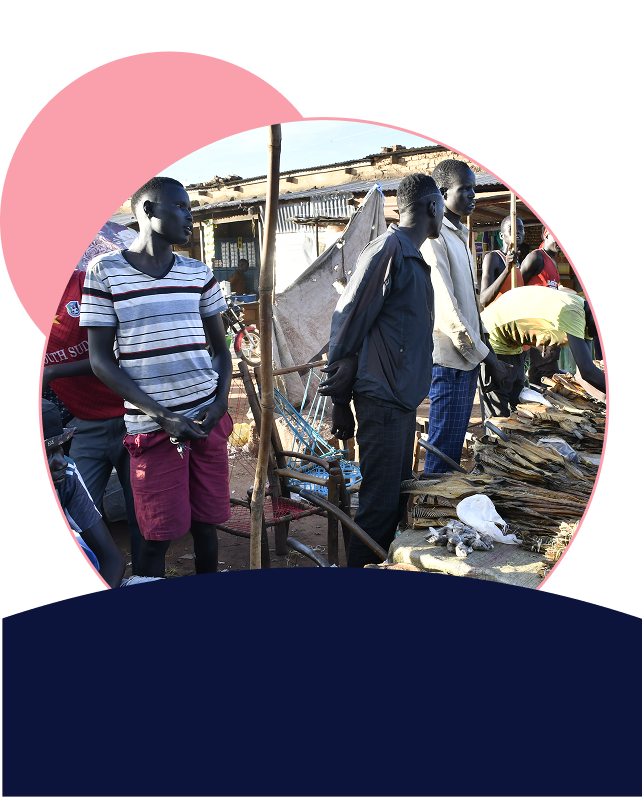
The impact of diversifying local foodproduction in South Sudan
The SUN Movement in South Sudan is working to address the country's high rates of malnutrition and food insecurity by encouraging multi-sector collaboration to transform food systems and prioritise nutrition.
By emphasising local food production, value chain development, and resilience-building, the SUN Movement aims to support South Sudan's efforts to reduce its dependence on imports and create a more sustainable and nutrition-sensitive food system.
By emphasising local food production, value chain development, and resilience-building, the SUN Movement aims to support South Sudan's efforts to reduce its dependence on imports and create a more sustainable and nutrition-sensitive food system.
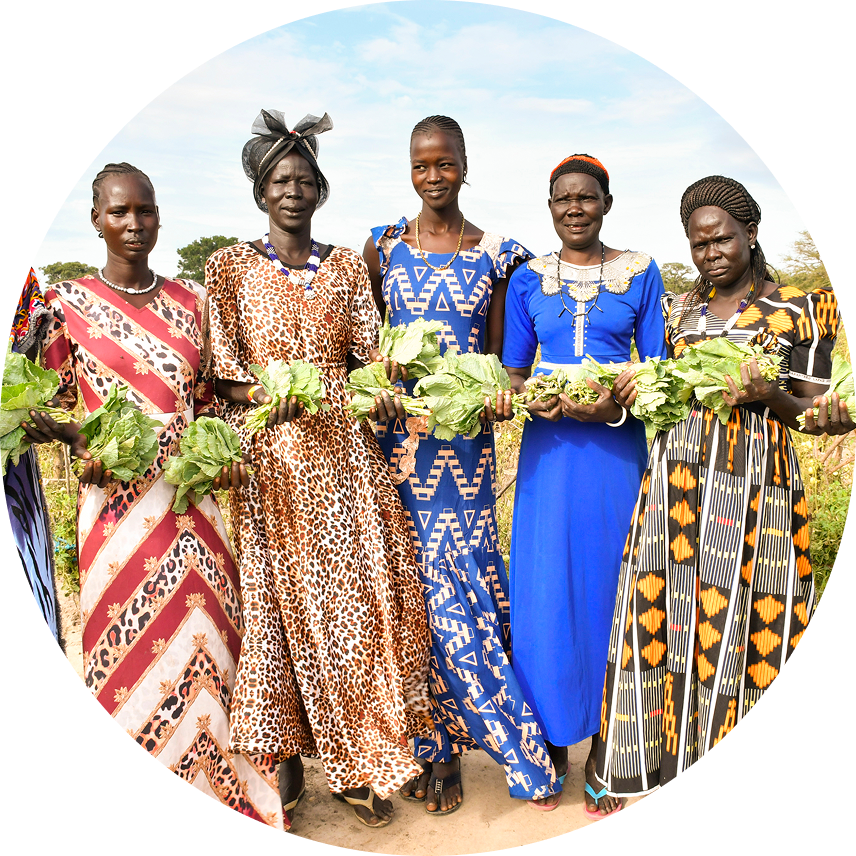
Supportive policies are the foundation of food systems transformation
The government is playing an active role in tackling the multi-faceted food crisis by creating an enabling policy environment to ensure communities, including women’s organisations and smallholder farmer cooperatives, are at the heart of the transformation.
The SUN Movement is working together with the government, the private sector, UN agencies, NGOs and local communities to support these efforts.
The SUN Movement is working together with the government, the private sector, UN agencies, NGOs and local communities to support these efforts.
... in South Sudan, the problem of malnutrition is largely attributed to lack of food. It's attributed to the quality of food. It's attributed to the availability of food.
…. The SUN Movement is trying to put together all the stakeholders, including the Minister of Agriculture, civil society, including academia, to put their heads together to address the problem of malnutrition from a multi-sector perspective.
…. The SUN Movement is trying to put together all the stakeholders, including the Minister of Agriculture, civil society, including academia, to put their heads together to address the problem of malnutrition from a multi-sector perspective.
Policies provide a strong foundation forpositive change and long term sustainability.
We need to shorten the value chain by increasing the local production of food. We need to empower our local farmers with knowledge. We need to introduce climate-smart agricultural practices. We need to introduce innovations. We need to also address the issue of infrastructure.
Transforming food systems to achieve the SDGs
Functional, nutrition-focussed food systems are key to overcoming the interconnected challenges of food insecurity, conflict, climate change and economic instability in South Sudan.
Better food systems are instrumental in achieving many of the sustainable development goals:
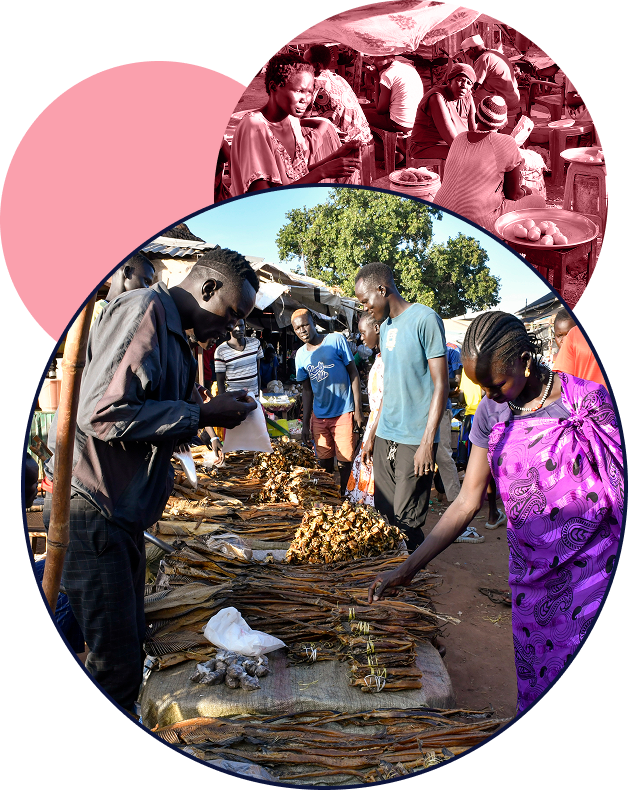
The private sector is also playing a key role in strengthening local value chains
For most farmers in South Sudan, access to a guaranteed market is one of the primary challenges. The government in partnership with civil society and UN agencies like the World Food Programme is working closely with farmers and local private enterprises to help strengthen value chains and boost nutrition-focused food production. This involves maintaining and adding to the value of a product throughout its full lifecycle from sourcing ingredients to production, consumption, and disposal.
Hagana agro-processing:
Improving local value chains
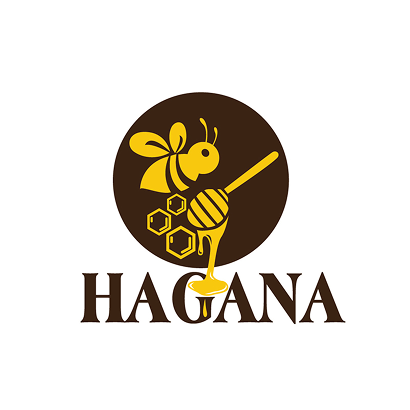
Founded in 2018, Juba-based Hagana is an agro-processing company that manufactures a range of products made from ingredients sourced from 1500 local smallholder farmers.
This includes peanut butter and healthy snack bars made from honey and sesame.
This includes peanut butter and healthy snack bars made from honey and sesame.
Currently, Hagana has three value chains including peanut butter, sesame energy crackers and honey.
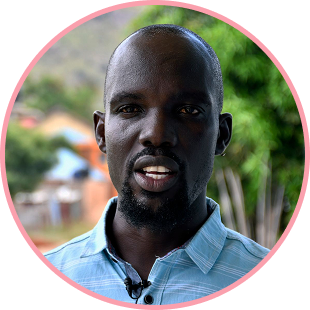
Sesame is one product that's very nutritious. A lot of products can be produced from it. There's oil, there's the sesame itself that can be made into snacks. So we thought of using the combination of sesame and honey to produce this energy pack.”
As the market for their products continues to grow, Hagana is also training farmers on improved methods to increase their production in a sustainable way.
The company sells around 11 tons of honey every year, and is helping to upskill local bee farmers to ensure they can continue to meet demand.
The company sells around 11 tons of honey every year, and is helping to upskill local bee farmers to ensure they can continue to meet demand.
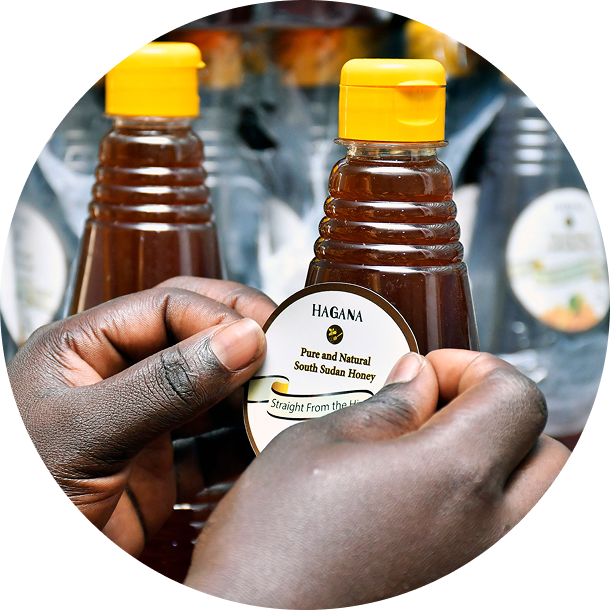
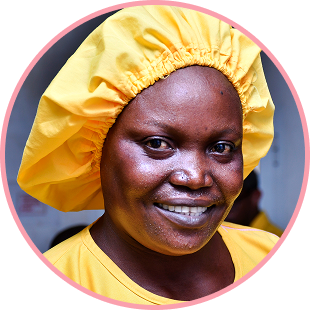
Hagana is supporting farmers, particularly those in remote areas. Since many farmers in these regions don’t have easy access to buyers, Hagana goes to them and purchases honey in bulk. This helps farmers earn an income and afford essential items like salt, which is especially important in villages. The money they receive also helps them pay for their children's school fees.”
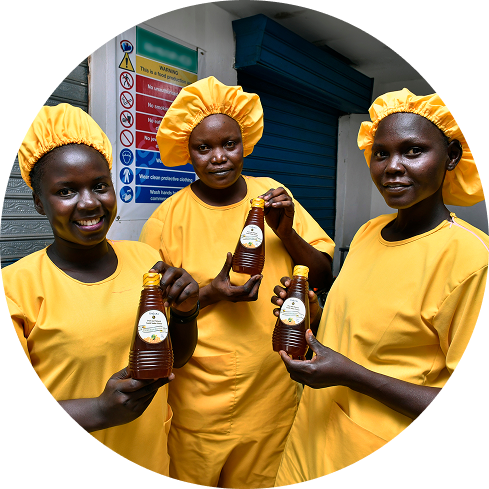
Making beekeeping more accessible to women entrepreneurs
Hagana has worked to make beekeeping more accessible to women by offering basic beekeeping training. The company also provides essential equipment including hives, buckets for honey collection, protective gear and smokers.
Traditionally, women in South Sudan are not allowed to climb trees where hives are typically placed, so Hagana uses Kenya Top Bar (KTB) hives. These can be placed closer to the ground. The design also allows for easy comb removal and does not require an expensive extractor for honey harvesting.
Traditionally, women in South Sudan are not allowed to climb trees where hives are typically placed, so Hagana uses Kenya Top Bar (KTB) hives. These can be placed closer to the ground. The design also allows for easy comb removal and does not require an expensive extractor for honey harvesting.
We want to ensure that the farmers increase on their number of hives so that they can increase their productivity and increase their revenues. Once we finish that value chain, then we go to the next product.”

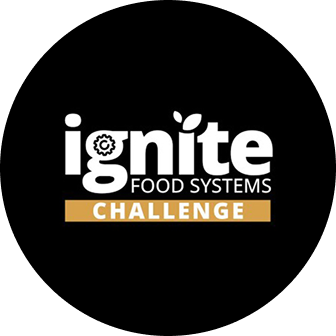
Hagana is supported by the IGNITE innovation challenge
- a World Food Programme initiative.
- a World Food Programme initiative.
Reviving local economies & introducing
dietary diversity: Injas Primary School
Another initiative that the SUN Movement has supported in South Sudan is the Home-Grown School Feeding programme (HGSF).
Injas Primary School is one of the schools that has implemented the HGSF, in partnership with the World Food programme (WFP) and ForAfrika.
Injas Primary School is one of the schools that has implemented the HGSF, in partnership with the World Food programme (WFP) and ForAfrika.
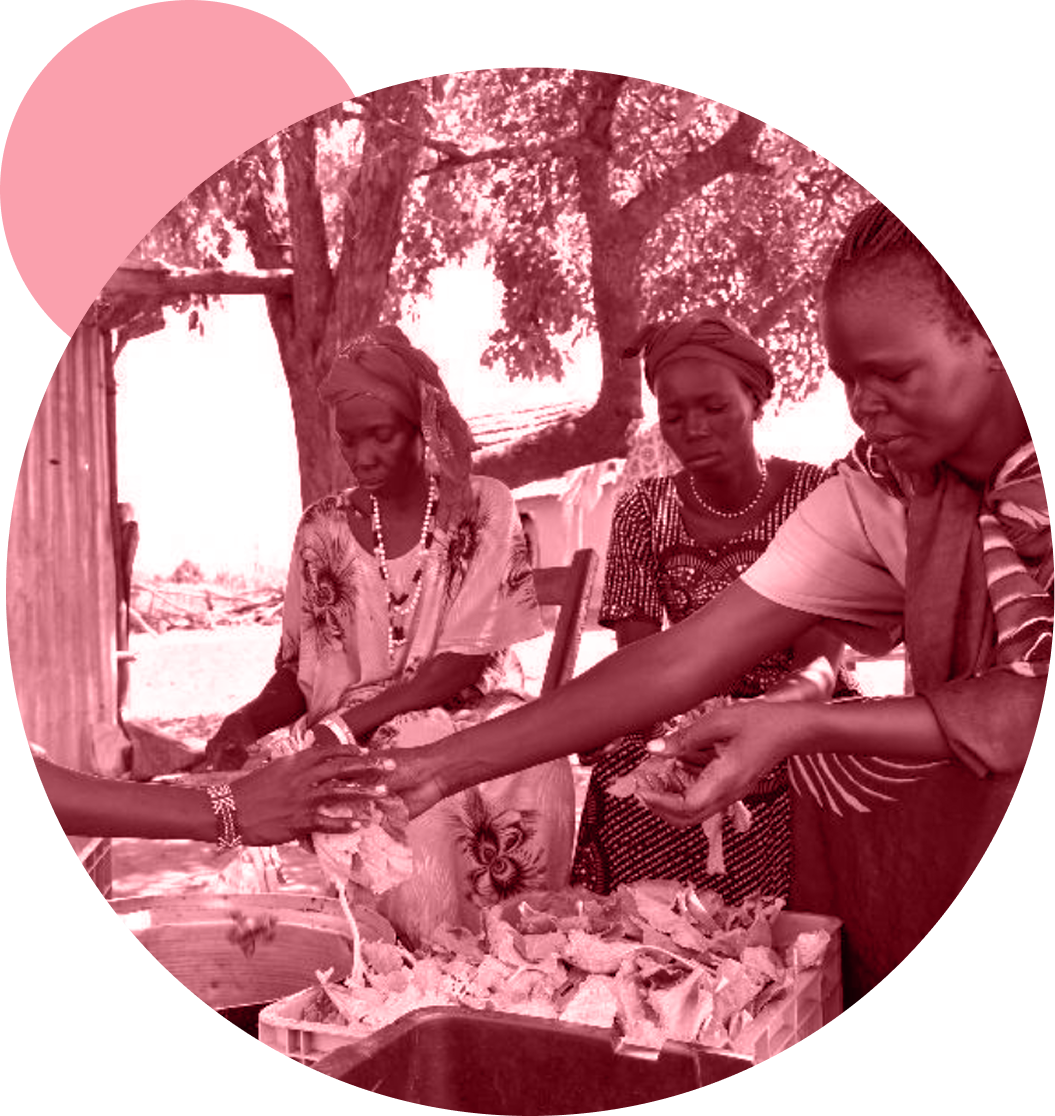
At Injas Primary School, Kuajok, Warrap State, mothers who are members of the Parent-Teacher Association cut vegetables to prepare the meals for the school as part of the Homegrown School Feeding Programme.
The aim of the programme is to improve the learners’ access to a diverse diet by providing daily nutritious meals.
This has been shown to improve learners’ overall health and wellbeing, as well as their cognitive abilities and academic performance.
This has been shown to improve learners’ overall health and wellbeing, as well as their cognitive abilities and academic performance.
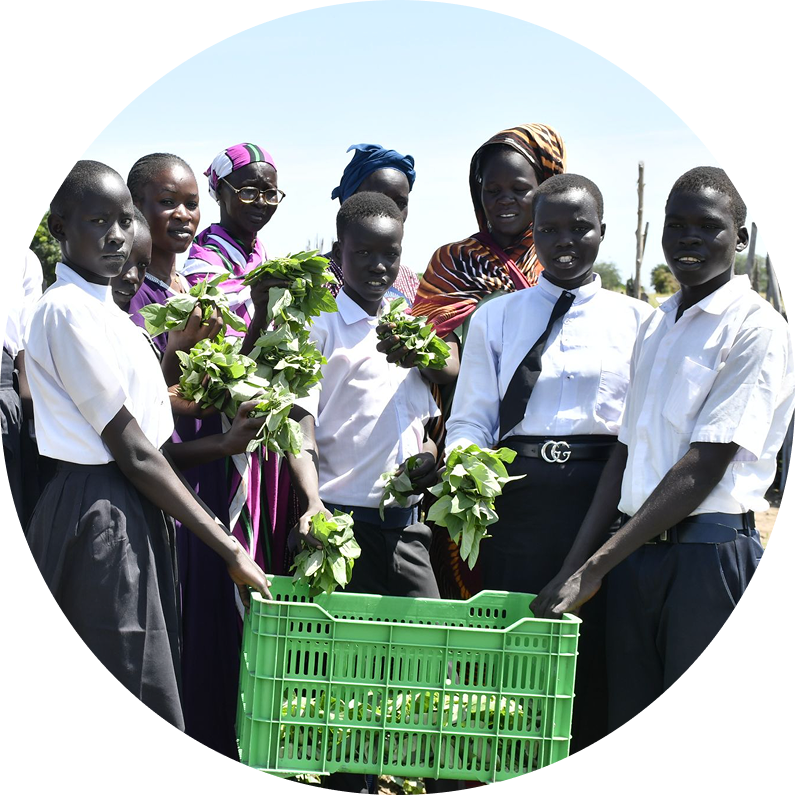
It is interesting to note that at the household level, more than half of the children that come to school arrive on an empty stomach. And more than half of these children who come in on an empty stomach, their households depend on the meal provided at the school as the main meal of the day.”
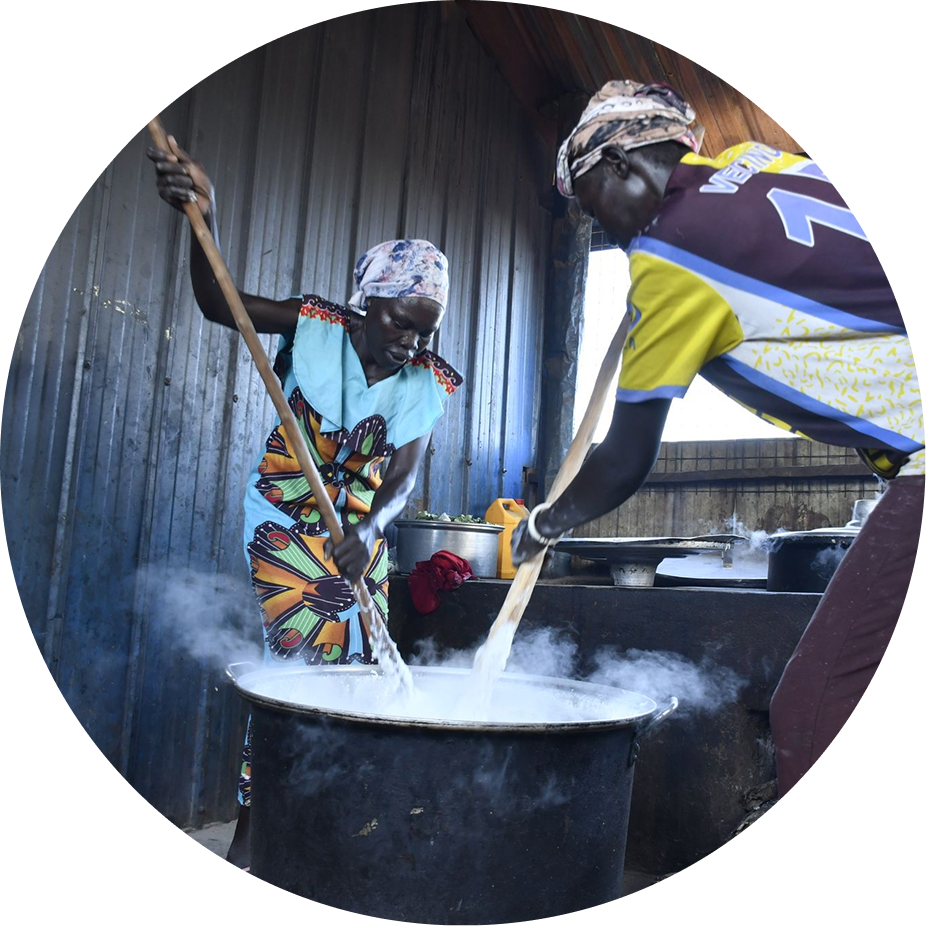
School meal committees, with input from parents, teachers, and cooks, develop meal plans based on local dietary preferences and the availability of seasonal produce. Retailers then source the ingredients from local farmers and supply them to the schools.
At Injas Primary School, Kuajok, Warrap State, South Sudan, students’ mothers and members of the Parents Teachers Association prepare the meal of the day based on a homegrown school feeding programme.
… many children they don’t have food at home but when we come here, we enjoy lunch.
You know, when you mix rice with beans, it gives you more energy.”
You know, when you mix rice with beans, it gives you more energy.”
Children at the school are also taught how to grow several different crops including eggplant, kale and cowpeas so that they can share this knowledge with their families and communities.
The meals are supplemented with ingredients sourced from farmers in the community, adding a welcome boost to the local economy.
The meals are supplemented with ingredients sourced from farmers in the community, adding a welcome boost to the local economy.
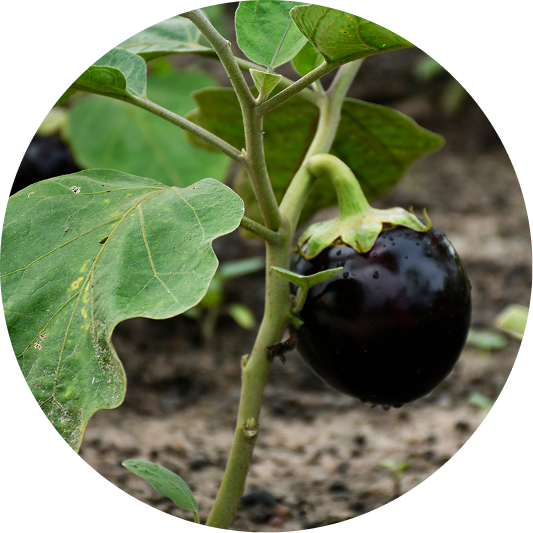
We normally supply the school feeding programme with dry rations including rice, beans, lentils, and cooking oil, including salt, plus some other fresh items like vegetables, dry fish, the peanuts, all local food including even sorghum.”
Since the programme began, enrolment at the school has increased by a remarkable
33% from 495 to 679 learners.


Students Adut Deng Atem (R) and Jacob Madel (L) in the school garden. They are holding a basket of cowpeas which will be used in the preparation of school meals.
Empowering women and children
at the LukLuk nutrition facility

Supported by WFP in partnership with Action Against Hunger (ACF) and UNICEF, a nutrition facility in LukLuk is a thriving example of integrated nutrition-based services.
The facility provides comprehensive treatment and prevention services for malnutrition, focusing on children under five, as well as pregnant and breastfeeding women.
The facility provides comprehensive treatment and prevention services for malnutrition, focusing on children under five, as well as pregnant and breastfeeding women.
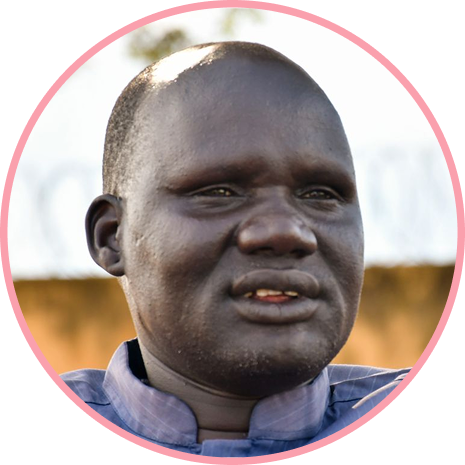
So when mother brings her child to the facility, they can be assessed for malnutrition, and referred to the nutrition unit where they can receive treatment and support.”
Women are also trained in basic farming techniques and regular
cooking demonstrations teach them how to prepare nutritious
meals using local ingredients.
cooking demonstrations teach them how to prepare nutritious
meals using local ingredients.
A lot has changed in my health and my children's health. My children and I used to be wasted, but now we are healthy.”
The Mother-to-Mother Support Group plays a key role in community outreach and empowerment. Members are trained to conduct malnutrition screening in the community and encourage mothers and children to visit the hub for treatment.

Nyakiir Akech Madut is part of the mother-to-mother support group. She sells some of her vegetables at the market and to the local school.

Together, the support group maintains a communal garden to provide food for their families. Surplus crops are sold to local retailers and the school. To manage their income, the group established a Village Saving and Loan Association (VSLA), allowing women to save money and access credit for essential needs such as school fees, healthcare, and household expenses.
The LukLuk facility is an example of how the collaborative, multi-sectoral approach to nutrition promoted by the SUN Movement can transform a community.
The LukLuk facility is an example of how the collaborative, multi-sectoral approach to nutrition promoted by the SUN Movement can transform a community.
Collaboration
will pave the way for a
food-secure future
Shifting from a reliance on humanitarian aid to building resilience, improving local food production, dietary diversity, and strengthening value chains, will help address the root causes of food insecurity and malnutrition in the region.
By bringing together the expertise and resources of government, civil society, UN agencies, the private sector, and communities, South Sudan is demonstrating how an enabling and collaborative environment can pave the way for a more stable, resilient, equitable and prosperous future for all its people.
By bringing together the expertise and resources of government, civil society, UN agencies, the private sector, and communities, South Sudan is demonstrating how an enabling and collaborative environment can pave the way for a more stable, resilient, equitable and prosperous future for all its people.

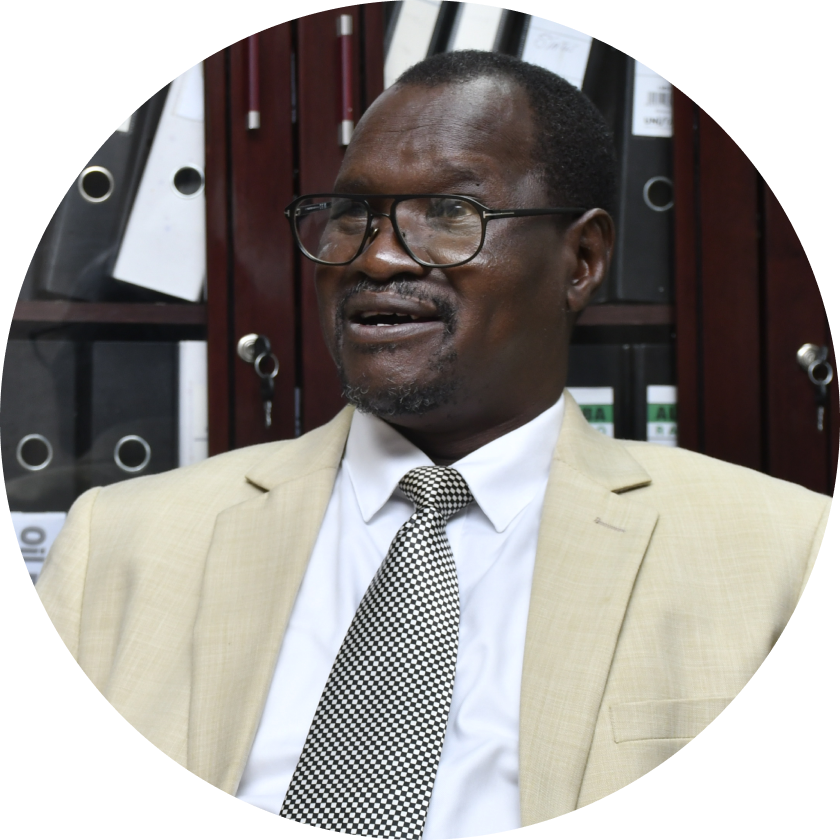
Bringing together diverse stakeholders, with the backing of partners through capacity building and financing, is a powerful step toward transforming food systems and achieving food security and better nutrition.”
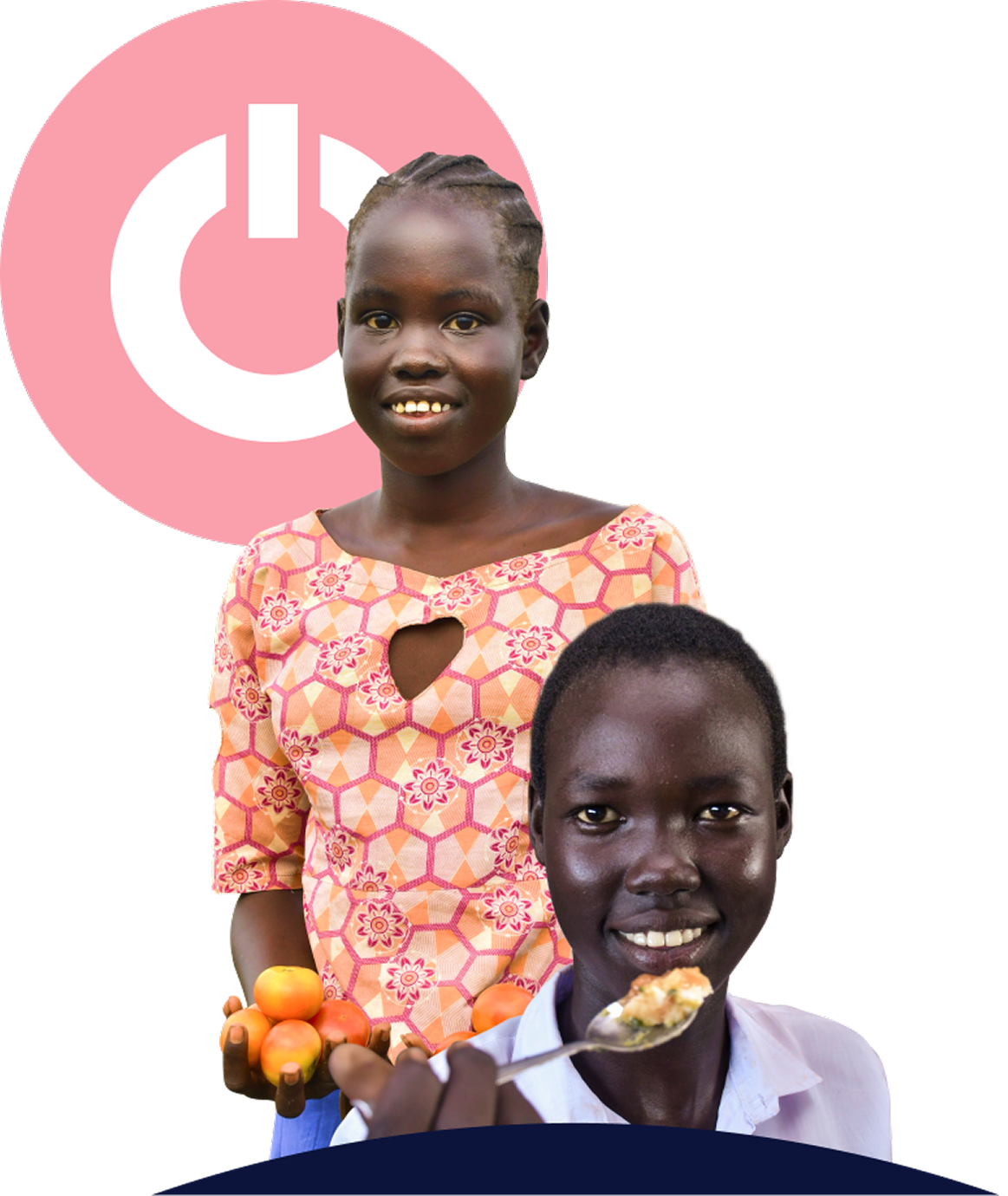
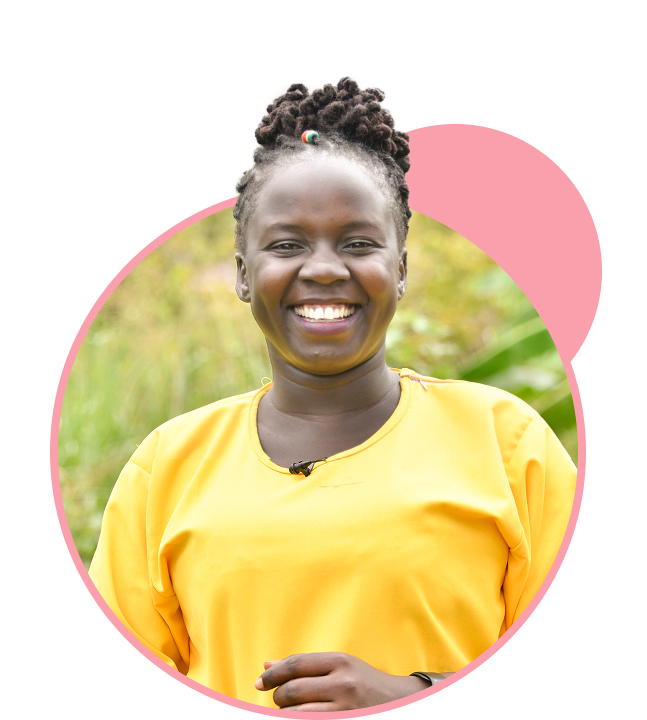
 English
English Français
Français Español
Español